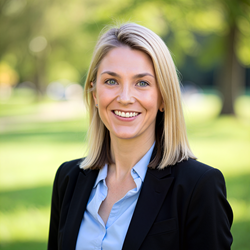2025 | Volume 26 | Issue 4

Associate Professor Kathryn McLeod
Urologist, Associate Professor Kathryn McLeod, FRACS, was awarded the 2023 RACS Ian and Ruth Gough Surgical Education Scholarship to research a critical, but often overlooked, issue in surgical education—the Trainee perspective in remediation.
Her research highlights the emotional toll of remediation—the formal process to address performance issues. “Many of the Trainees I interviewed had finished training years ago but were still traumatised by the experience. That’s not good enough,” she says.
From supervisor to researcher
Associate Professor McLeod’s interest in surgical education grew after she became a SET supervisor. “I wanted to do a better job helping our Trainees. It sparked me to take up further studies, so I did a Master’s in Surgical Education.”
While she had insight into the supervisor’s role, she recognised a missing piece. “Trainees are central to the whole process, but they don’t have much power; they are an unheard and underappreciated voice.”
That realisation laid the foundation for her PhD at the University of Melbourne, which is focused on improving remediation processes in surgical training.
Revealing the feedback gap
In her first study, she recorded real-life feedback sessions between SET Trainees and supervisors followed up by personal reflections on those conversations. She found that while supervisors often believed their messages were clear, Trainees frequently missed the underlying concerns. “Giving difficult feedback is tricky. Supervisors try to be kind and unfortunately sometimes the message gets lost. Then issues compound over time.”
She has published two papers in the American Journal of Surgery on Trainee perspectives on remediation and is now developing an optimal remediation framework. Her approach includes structured feedback, clear timelines, emotional support, and active Trainee involvement.
“Right now, Trainees are passive. We need to make them active participants in the process.”
A new way forward
Associate Professor McLeod also proposes peer support. “Trainees going through remediation should be able to speak to someone who’s been through it. They should be able to express their fears and frustrations, without the fear of repercussions. Just real understanding and emotional support.”
Her findings highlight large gaps in the system. Trainees face emotional strain and unclear expectations, while supervisors often lack the tools to give effective feedback.
High turnover of supervisors makes things harder. “Surgeons aren’t trained to be teachers. We can’t expect them to instinctively know how to deliver difficult feedback effectively.”
Currently finalising her PhD, Associate Professor McLeod’s goal is clear—develop her remediation framework to be embedded in policy. “It should be evidence-based, practical, and Trainee-centred.”
On the RACS scholarship
“The scholarship was really helpful, not just to pay for things like statistical software, but also to give surgical education projects more recognition. I’m very grateful for that opportunity. Since then, I’ve been able to do a lot more, and that preliminary work was key.”
She encourages all surgeons to apply. “Look at the criteria early and just have a go. I didn’t think I had a chance. You’ve got to be in it to have a chance.”
Life in medicine and family
Associate Professor McLeod says her decision to study medicine was driven by a simple desire to “help others”.
She found her calling in urology, drawn by the long-term care it offers. “I get to have this longitudinal relationship with patients. Some of them have been with me for more than 10 years.”
Her choice was also shaped by early role models. “I got along so well with my bosses when I was a junior doctor. They were great mentors. Honestly, I loved all aspects of surgery.”
Balancing research and regional life
Outside of work, she says, “Well, my hobby is my PhD, so it’s a bit sad.”
Much of her time is spent with her young family. “I have two little boys, six and eight, and all we do is talk about soccer—not my choice, theirs.”
Associate Professor McLeod works at Barwon Health and St John of God Hospital. “It’s really nice not being in a big city—no traffic and being able to spend more time with my family.”